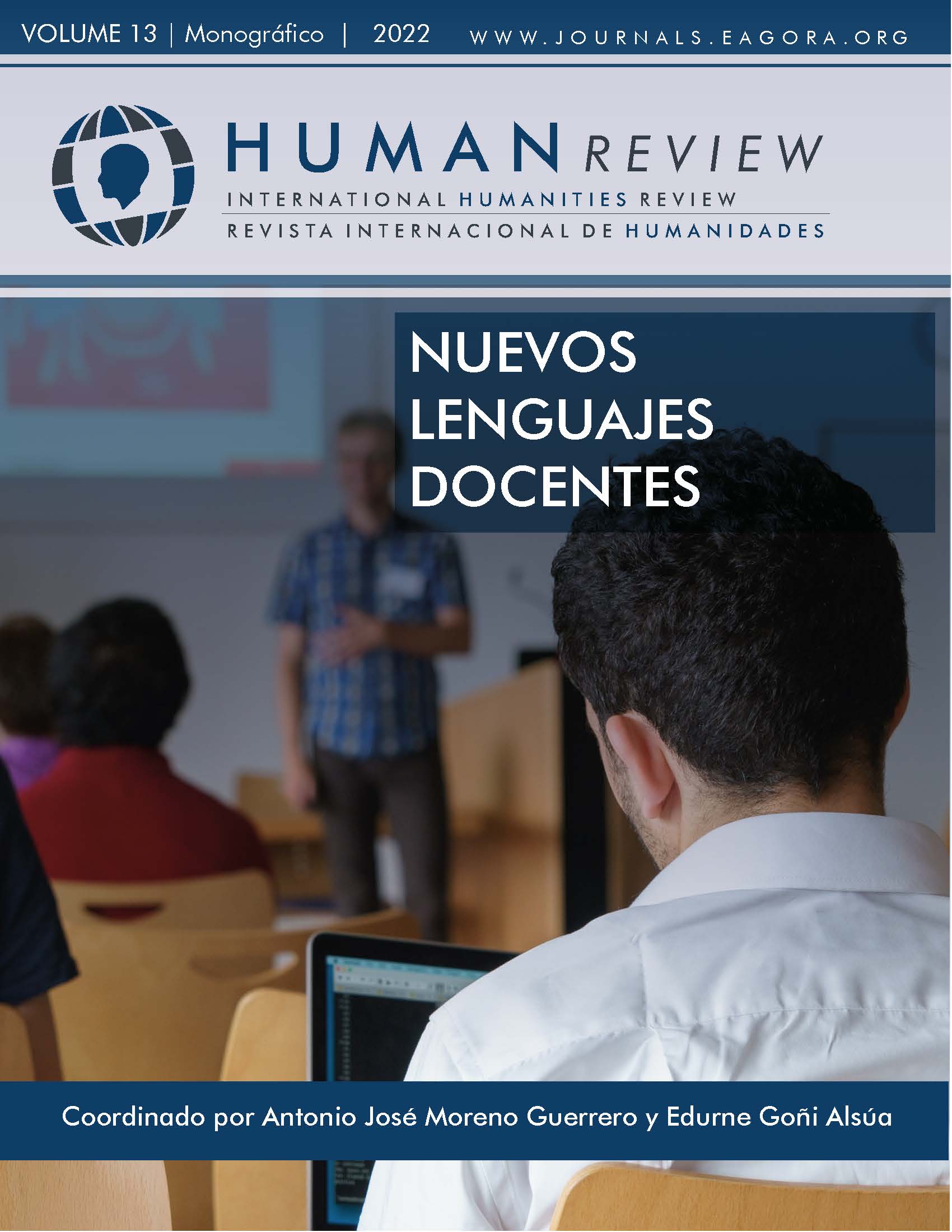Why a mathematics teacher studies a master’s degree in Mathematics Education
DOI:
https://doi.org/10.37467/revhuman.v11.4024Keywords:
Teacher professional development, Math teacher, Online master, In-service teachers, NarrativeAbstract
A study of in-service mathematics teachers motivation to pursue a master degree in Mathematics Education is presented. The research was carried out by analyzing the files of four admission processes. 316 cases between the years 2018-2021 were considered. During an interview, participants responded to the question “Why did you decide to study the Master in Science in Mathematics Education degree?” The outcomes indicated the most declared reason was to seek professional development; this predominant response was maintained across these years (except for 2019). Other popular reasons included the master degree modality, institutional prestige, and pleasure in teaching mathematics.
References
Ávila, J. I., y Díaz, L. C. (2019). Emociones en Educación Matemática: una mirada con base en el pensamiento complejo. Educação & Realidade, 44(1), 1-19. Doi: 10.1590/2175-623676639 DOI: https://doi.org/10.1590/2175-623676639
Artigüe, M. (2020). El desarrollo de la didáctica de las matemáticas, una mirada internacional. Revista Chilena de Educación Matemática, 12(3), 83-95. Doi: 110.46219/rechiem.v12i3.38 DOI: https://doi.org/10.46219/rechiem.v12i3.38
Cantoral, R., y Farfán, R.M. (2003). Matemática Educativa, una visión de su evolución. RELIME, 6(1), 27-40. https://www.redalyc.org/articulo.oa?id=33560102
Barrios, H., y Gutiérrez de Piñeres, C. (2020). Neurociencias, emociones y educación superior: una revisión descriptiva. Estudios Pedagógicos (Valdivia), 46(1), 363-382. Doi: https://dx.doi.org/10.4067/S0718-07052020000100363 DOI: https://doi.org/10.4067/S0718-07052020000100363
Bracho, R., Jiménez-Fanjul, N., Maz-Machado, A. Torralbo-rodríguez, M., y Fernández-Cano, A. (2014). Producción Científica sobre Narrativa en Educación Matemática en la Web of Science. Bolema: Boletim de Educação Matemática, 28(49), 744-761. Doi: https://doi.org/10.1590/1980-4415v28n49a14 DOI: https://doi.org/10.1590/1980-4415v28n49a14
Chinche, S.M. (2020). Consideraciones generales en torno a la comprensión de la realidad del mundo social. HUMAN Review, 9(2), 127-140. Doi: https://doi.org/10.37467/gka-revhuman.v9.2613 DOI: https://doi.org/10.37467/gka-revhuman.v9.2613
Lopez, M. De J. (2013). Una reforma “educativa” contra los maestros y el derecho a la educación. El Cotidiano, 179, 55-76. Disponible en http://www.redalyc.org/articulo.oa?id=32527012005
Molina, J. G., Rosas, A. M., y Romo-Vázquez, A. (2011). Una formación docente para el profesor de matemáticas. En G. Buendía. (Ed.). Reflexión e Investigación en Matemática Educativa (pp. 31-43). Ciudad de México: Lectorum.
Moran, A., Kilpatrick, R., Abbott, L., Dallat, J., & McClune, B. (2001). Training to teach: Motivating factors and implications for recruitment. Evaluation & Research in Education, 15(1), 17-32. DOI: https://doi.org/10.1080/09500790108666980
Niss, M. (1999). Aspects of the nature and state of research in mathematics education. Educational Studies in Mathematics, 40, 1-24. Doi: https://doi.org/10.1023/A:1003715913784 DOI: https://doi.org/10.1023/A:1003715913784
Patahuddin, S. M. (2013). Mathematics teacher professional development in and through internet use: reflections on an ethnographic study. Mathematics Education Research Journal, 25(4), 503–521. DOI: https://doi.org/10.1007/s13394-013-0084-5
Real Academia Española (2021). Narrar. Diccionario de la Lengua Española (Edición del Tricentenario). Real Academia Española. Disponible en https://dle.rae.es/narrar?m=form
Rivas, C. (agosto, 16, 2021). ¿Cuál es la posición de la UNAM y el IPN en el ranking mundial de universidades? El Heraldo de México. Recuperado de https://acortar.link/EKa2O4
Salazar, C. (2021). ¿Qué aporta la investigación narrativa a los currículos de formación de profesores de matemáticas? Tecné, Episteme, Didaxis: TED, 49, 107-122. Doi: https://doi.org/10.17227/ted.num48-12375 DOI: https://doi.org/10.17227/ted.num48-12375
Schoenfeld, A. H. (2007). Method. En F. K. Lester, Jr. (Ed.), Second Handbook of Research on Mathematics Teaching and Learning (Vol. 1, pp. 69-107), Charlotte, NC: Information Age Publishing.
Widman, F. (2021). Desarrollo profesional de profesores de matemáticas en ambientes virtuales: ventajas, aproximaciones teóricas y futuras líneas de investigación. Educación Matemática, 33(2), 227-244. Doi: 10.24844/EM3302.09 DOI: https://doi.org/10.24844/EM3302.09
Downloads
Published
How to Cite
Issue
Section
License
Those authors who publish in this journal accept the following terms:
- Authors will keep the moral right of the work and they will transfer the commercial rights.
- After 1 year from publication, the work shall thereafter be open access online on our website, but will retain copyright.
- In the event that the authors wish to assign an Creative Commons (CC) license, they may request it by writing to publishing@eagora.org









